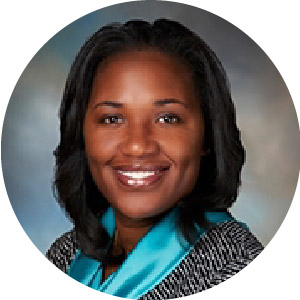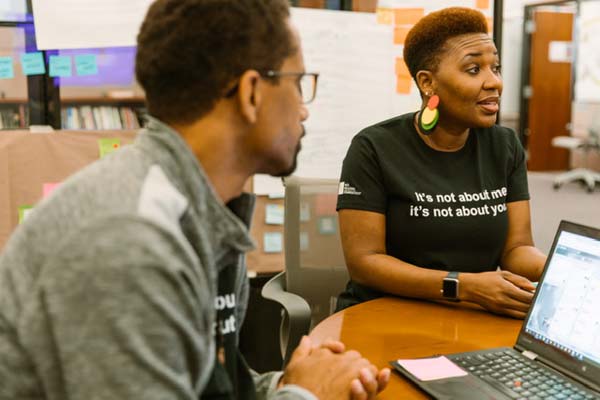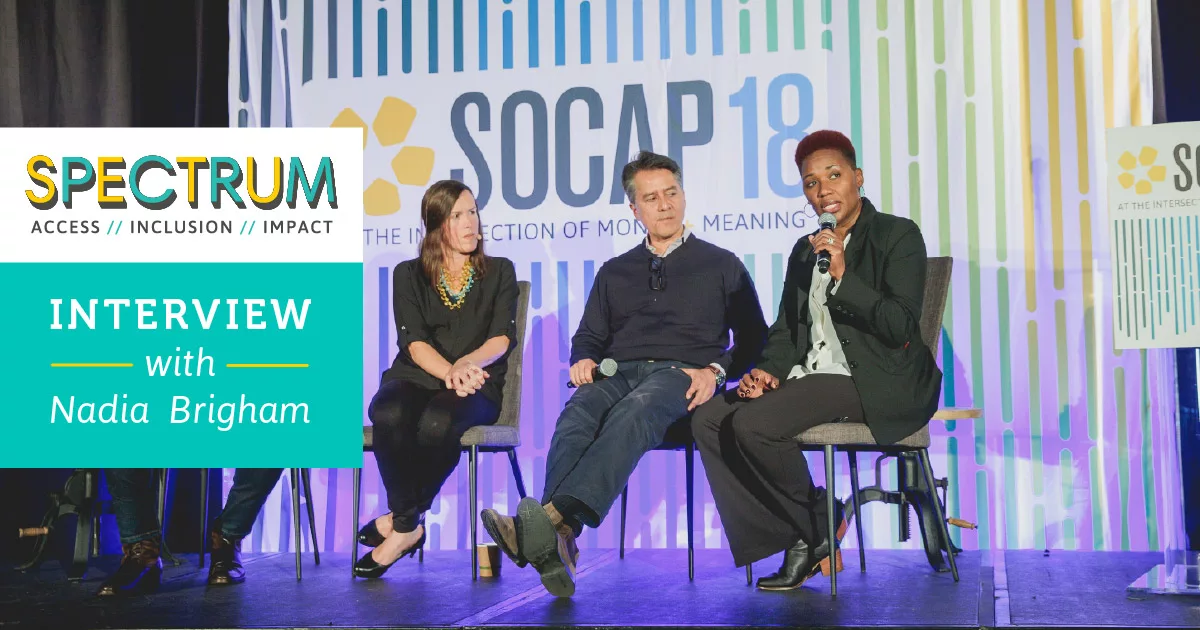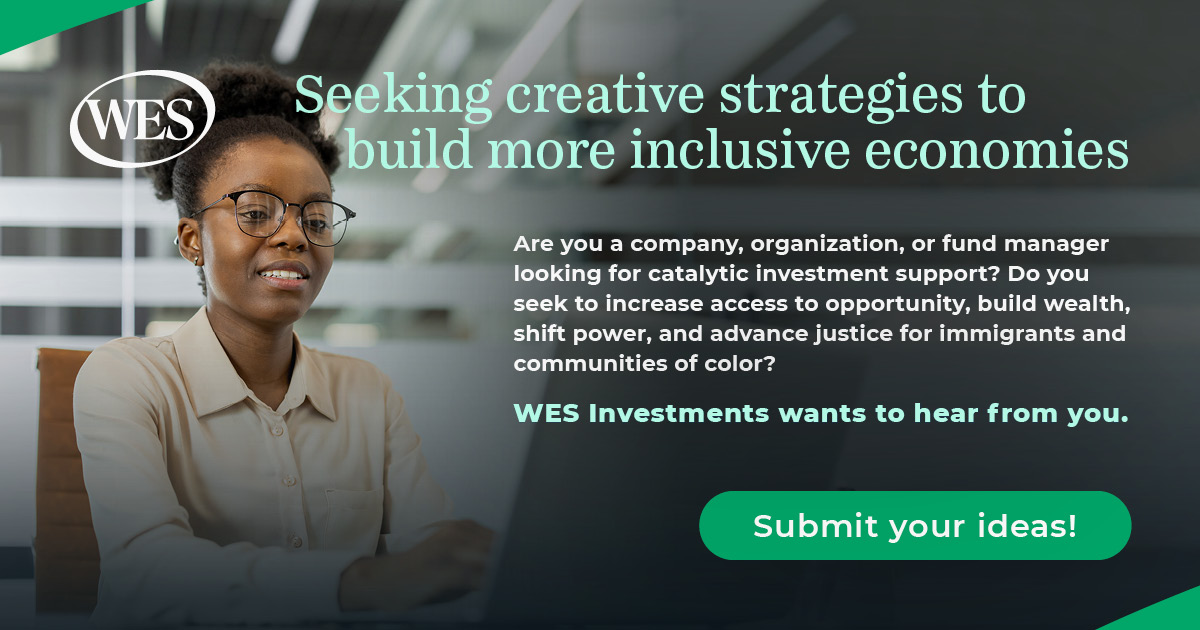 Nadia Brigham has spent the last two decades of her life working to achieve wide-scale systems change in order to build equitable policies and practices into systems and structures.
Nadia Brigham has spent the last two decades of her life working to achieve wide-scale systems change in order to build equitable policies and practices into systems and structures.
In her role as Racial Equity Program Officer with the W.K. Kellogg Foundation, Brigham oversaw, developed, and led strategies to address systemic barriers faced by historically marginalized communities and children. Today she continues this work as the leader of her own consulting firm, Brigham Consulting.
Brigham will be leading conversations, building coalitions, and creating space for transformational change at the inaugural SPECTRUM event in Atlanta, a two-day immersive convening in June that will focus on all the ways we can build an impact economy based on equity, diversity, and inclusion where everyone can thrive.
We recently sat down with Brigham to talk about SPECTRUM, her career building impact and racial equity, and the things that are giving her hope for the future.
SOCAP: Why is this conversation, and this work, so important? Why do you personally do this work?
Nadia Brigham: If by “work” we are talking about racial equity, this work is a spiritual calling for me. It is the work of helping human beings tap into their full potential as individuals as well as a collective.
Racial equity, for me, is about acknowledging, celebrating, and making room for the divine-given life of individuals and communities and then creating systems, policies, and practices that honor that and don’t dehumanize anyone in any way. I found this work, and my purpose, through my own journey of healing from internalized messages of what it means to be a Black and a woman. And it has given me hope for all humanity.
As I walk with leaders, dedicated to serving their communities in one way or another across this country–in after-school programs or leadership development programs or health equity efforts, or those meaningfully diversifying staff in a construction company–no matter who I talk to or what work they are engaged in, the way in which our systems are set up impacts their work. There is not a sector for which this issue is not important. It is in the very fabric of our country. And I would say that one of the last bastions to tackle racial equity are those in the private sector, and a focus on social impact is an opening to that work. The private sector is critically important because of the history of colonization and capitalism and their impact on human beings. Being able to tackle issues of equity in this way, with this audience, in this particular session, is critically important.
I would also say personally, in terms of why I do this work, when I walk with leaders and help them understand the concepts and the structures around racism, watching them make those connections within themselves and to the work they do is impactful to say the least. I think most people that have gone through this process have come to a new awareness and are one step closer to transformation.
 What gives me real joy and motivation is that moment when people reach the intersection of their new awareness or new knowledge and the cognitive dissonance that arises. It’s the crossroads where they begin to question what they’ve always known to be true and these new questions they have to grapple with systems and structures and how they were set up, and who were they meant to benefit.
What gives me real joy and motivation is that moment when people reach the intersection of their new awareness or new knowledge and the cognitive dissonance that arises. It’s the crossroads where they begin to question what they’ve always known to be true and these new questions they have to grapple with systems and structures and how they were set up, and who were they meant to benefit.
Depending on where you sit in terms of privilege, that cognitive dissonance looks a little bit different. But that place in the process is really motivating for me in this work. It connotes hope. It incites movement and action. That is where I like to agitate in the most righteous, supportive way possible.
SOCAP: You worked at the W.K. Kellogg Foundation for many years, where you most recently served as the Racial Equity Program Officer. And now you are doing your own work to advance human equity. What will you be bringing with you from your background and life’s journey into your role as facilitator of this conversation at SPECTRUM?
Nadia Brigham: I had a wonderful career at the Kellogg Foundation and had the opportunity to meet amazing leaders all across the country–just some amazing people at every level of community. I got a chance to learn from their leadership and courage; see them have breakthroughs in their leadership; and try on new things. And I got a chance to invest in their leadership, which is most pertinent to SPECTRUM. How do we take a chance on leaders? They are betting on their own leaders; how do we do the same?
I was most touched by grassroots leaders who may not have had an infrastructural support of an organization or large institution. They may not have known the who’s who of the field, but they were hands-down the most experienced and served as experts-in-residence on the issues they were grappling with and leading around in their communities. I’ll be bringing together the experiences of working with leaders whose communities who have been made vulnerable by structural barriers, but have inherent value and a set of assets that are going untapped, with those who are powerfully situated, desire social impact, have a set of assets to leverage. I will also be bringing a set of exercises and tools that are practical in helping these leaders take action toward the objectives of SPECTRUM: Access, Inclusion, and Impact.
Key to this event, and what I’m gifted in, is creating safe and brave spaces to highlight those tough places in the conversation around racial equity. Sometimes people aren’t even comfortable saying the word “racial” without feeling butterflies in their stomachs or sweaty palms or thinking “I don’t want to offend anybody” or “I don’t want to be called a racist or insensitive.” My job is to inspire, provoke and create the kind of space where people can be comfortable grappling with these issues. My job is to create that space where people can be gently but unapologetically pushed towards action. So this is not a theoretical conversation for me. This is not about just building awareness and knowledge.
This work is about building skill-sets so that people can take action around equity, whether it’s racial equity or equity writ large. No matter what that work is. I don’t care if they are changing tires or advancing policy, taking care of young children, taking care of the elderly, investing dollars in organizations. It doesn’t matter to me what the organizational mission is–given the system that we live in. It really is about the question how do you help people take this on as individuals in their own lives? This isn’t the kind of work that you can only do from nine to five. If I were a banker, I’d do my banking from nine to five and clock out until tomorrow. But equity work is humanity work. Our aim is to show up as fully human 24/7.
SOCAP: For people who are coming to SPECTRUM, how can people prepare for these types of conversations and this critically important work?
Nadia Brigham: I would encourage participants in SPECTRUM to prepare themselves and give themselves permission to open up and go places mentally and also in their heart that they may have never gone, or at least considered in the workplace. I would encourage them to integrate the mind with the body and the soul. This is full body work. This is not just mind work. I would encourage a mental shift around that notion.
I would encourage participants to adopt an action-orientation. Yes we want to increase awareness and knowledge, but it only counts if we are increasing skills that will move people to action. If we don’t move ourselves to action, it is akin to having an image of a hammer and a theoretical understanding of what its function is, but no skills to be able to use it to build anything new. Maybe you read it in a blog or saw a picture of it, but you’ve not felt it run through your hands or had it touch your heart in a way that you know what to do with it. To that end, I would ask that people think about the action that they want to take. Be in an action oriented mindset upon arrival. Think about what you want to be doing differently or what you want to take from this that you can actually change.
What is the one thing you can do as an individual? What is the thing that you can take back to your team or organization for change? Think as a visionary about systemic change. Your individual and organizational change can be part of a broader systemic change effort.
Last, I would encourage participants to become familiar with The Business Case for Racial Equity, a body of work commissioned by the W.K. Kellogg Foundation. There will be a powerful panel at SPECTRUM focused on the business case for racial equity. I would encourage people to read that report if they haven’t done so. Just so they can see how very relevant racial equity is and the values and assets that are lost and minimized when we don’t do this work.
SOCAP: Who has been missing from this conversation? Who needs to be in the room at SPECTRUM and participating in other efforts to increase access, inclusion, and impact for communities of color?
Nadia Brigham: I believe all private sector leaders would find SPECTRUM to be a good, instructive and motivating use of time. Angel investors, financial leaders, boards of directors are all welcome. Positional leaders across financial sectors are critically important to efforts around advancing equity. The success of equity efforts are dependent upon buy-in from positional leaders within a company or organization. They are decision makers and policymakers who can set the tone for this work being done authentically, effectively and powerfully, and alongside those who are impacted by the inequities of the current structure.
SOCAP: What impact would you like for this event to have in the Atlanta community and beyond?
Nadia Brigham: SPECTRUM has a set of concrete objectives for the convening that centralize themes of inclusion, access, and impact for leaders of color and the broader community.
If we can look at SPECTRUM, this event, and the work writ large that SPECTRUM, SOCAP, and partners are doing, at the end of this work what you want to see is increased capital–dollars, tools, and information going to historically marginalized communities.
I want to see an economy that is built to ensure demonstrated outcomes from equal opportunity where folks are thriving and achieving prosperity. I want to see that the impact of those investments are solutions that drive positive social change.
SPECTRUM and its partners have focused on Atlanta and the southern region with intention. The event is open to all nationwide, but I hope that because there is such a focus on what is happening in Atlanta in the social impact space that there we will see some very specific impacts and advancement for people of color and the social impact movement in Atlanta and the southern region in particular.
SOCAP: What call to action would you issue to anyone who wants to help build a fair, just, and more equitable economy?
Nadia Brigham: The call to action is around intention–persistence and relentless intention. What that requires, then, is a set of questions or protocol that we ask ourselves daily. Almost with every interaction, every strategy, we must ask ourselves:
- How is this action increasing access to capital for historically marginalized communities? How do we know? Did they tell us so?
- How is this action increasing knowledge?
- What are the tools and information that are needed? That are being disseminated? That are being used?
- What are the vehicles we are using to deliver this information and these tools to communities?
- Is it enough? And if not, what will we do now?
There has to be intentionality around the asking of these questions and the evaluation of these efforts at every step, not only at the end of the effort, but in every action that you take.
And we must establish some checks and balances around the new kind of economy that we are building. It is one thing to say that everybody has equal opportunity–but if the opportunity is never fully realized by those who are historically marginalized, then you have to then question the validity of that equal opportunity.
Along with equal opportunity we need a set of strategies that measure how those opportunities are being evaluated and realized. What does the social change look like? Have we gone far enough? And that evaluation of efforts has to centralize the voices of those most disenfranchised to validity.
I believe, because of the kind of transformational change that I’ve seen in individuals and in organizations and communities, that done with intention, we can realize racial equity. When it comes to human sustainability, our choices are limited. Racial equity, and equity writ large is a human imperative. And I bear witness that change is possible.
SOCAP: What is inspiring you in your work right now? What is giving you hope?
Nadia Brigham: People give me hope. While human beings have the capacity to harm one another, we also have the capacity to tap into our higher selves–our true humanity. And when I’ve met leaders who have done that, who have tried to advance that level of being in their organizations, I’ve also seen tremendous impact, leadership, and power in the lives of all the individuals they touch.
This social and political space we find ourselves in now, oddly enough, gives me hope. In times of polarization, great leaders rise, great movements are advanced, and great change occurs. And so I’m searching with hope and intention, for where that leadership is going to come from.
SPECTRUM will be returning to Atlanta in 2020! Join the conversation about Access, Inclusion, and Impact at the SPECTRUM June 9 – 11, 2020. Learn more and register for SPECTRUM here.
Nadia Brigham participated in the session, Journeys in Racial Equity: From Race Neutral to a Racial Equity and Inclusion Lens at SOCAP18.






